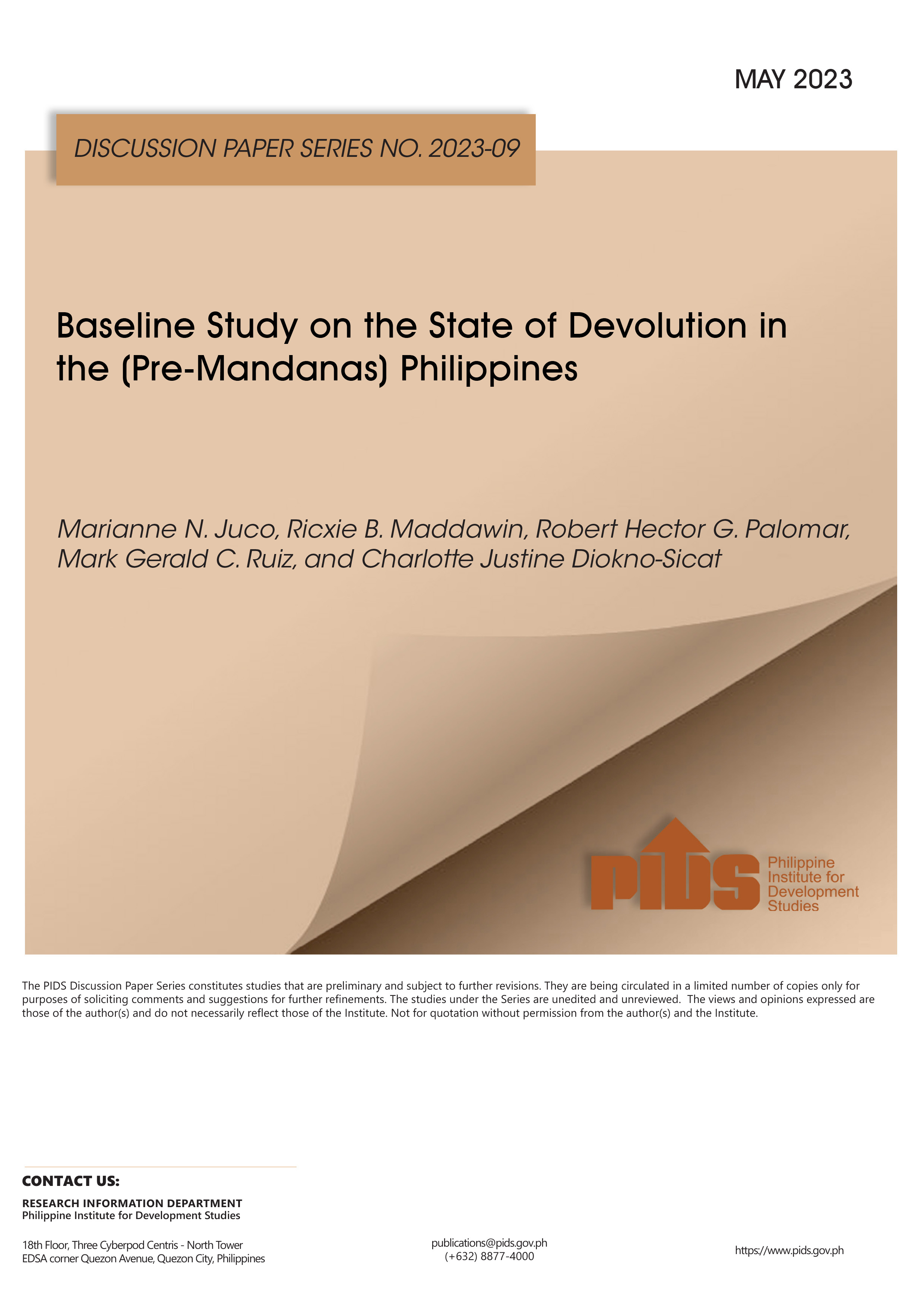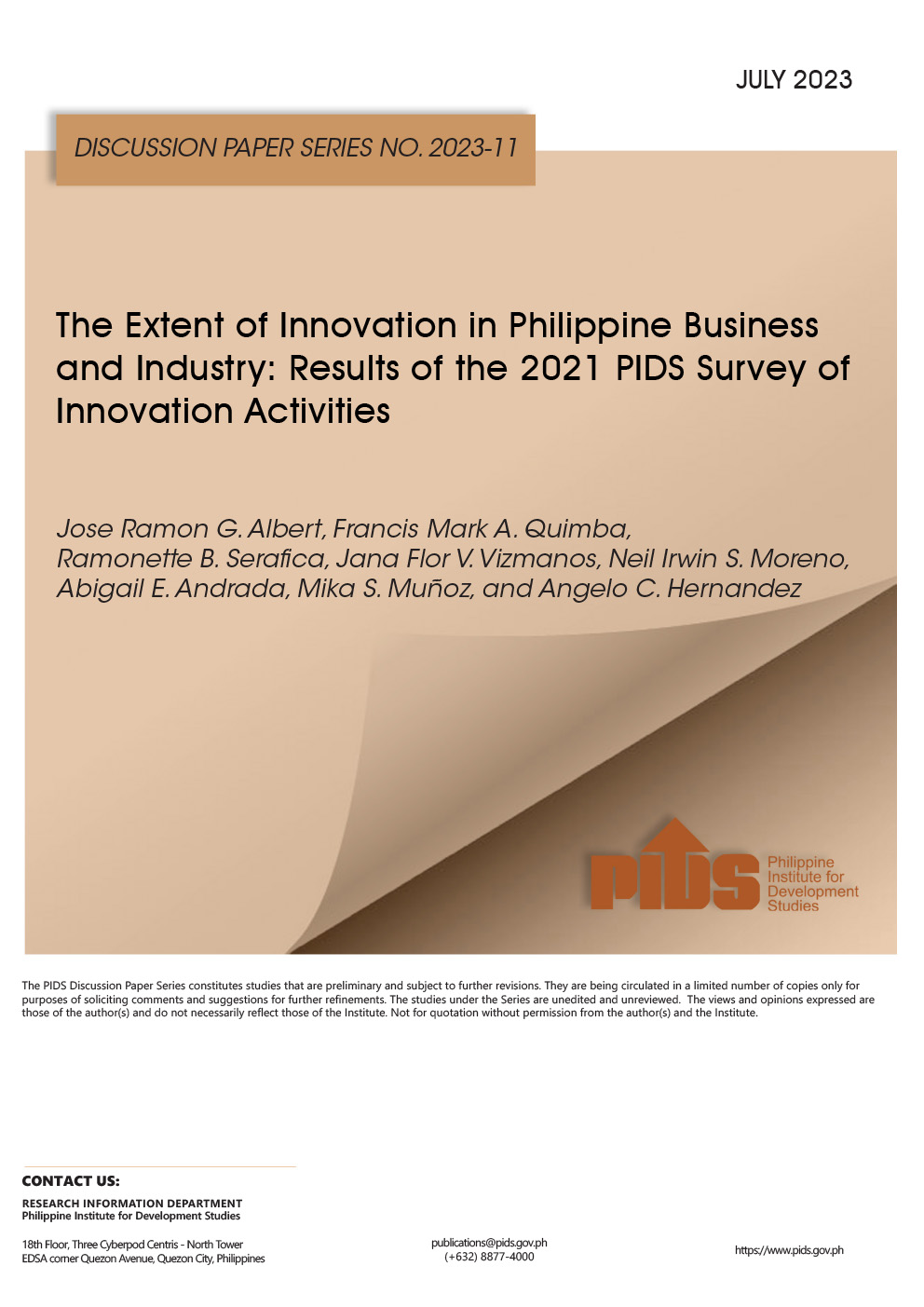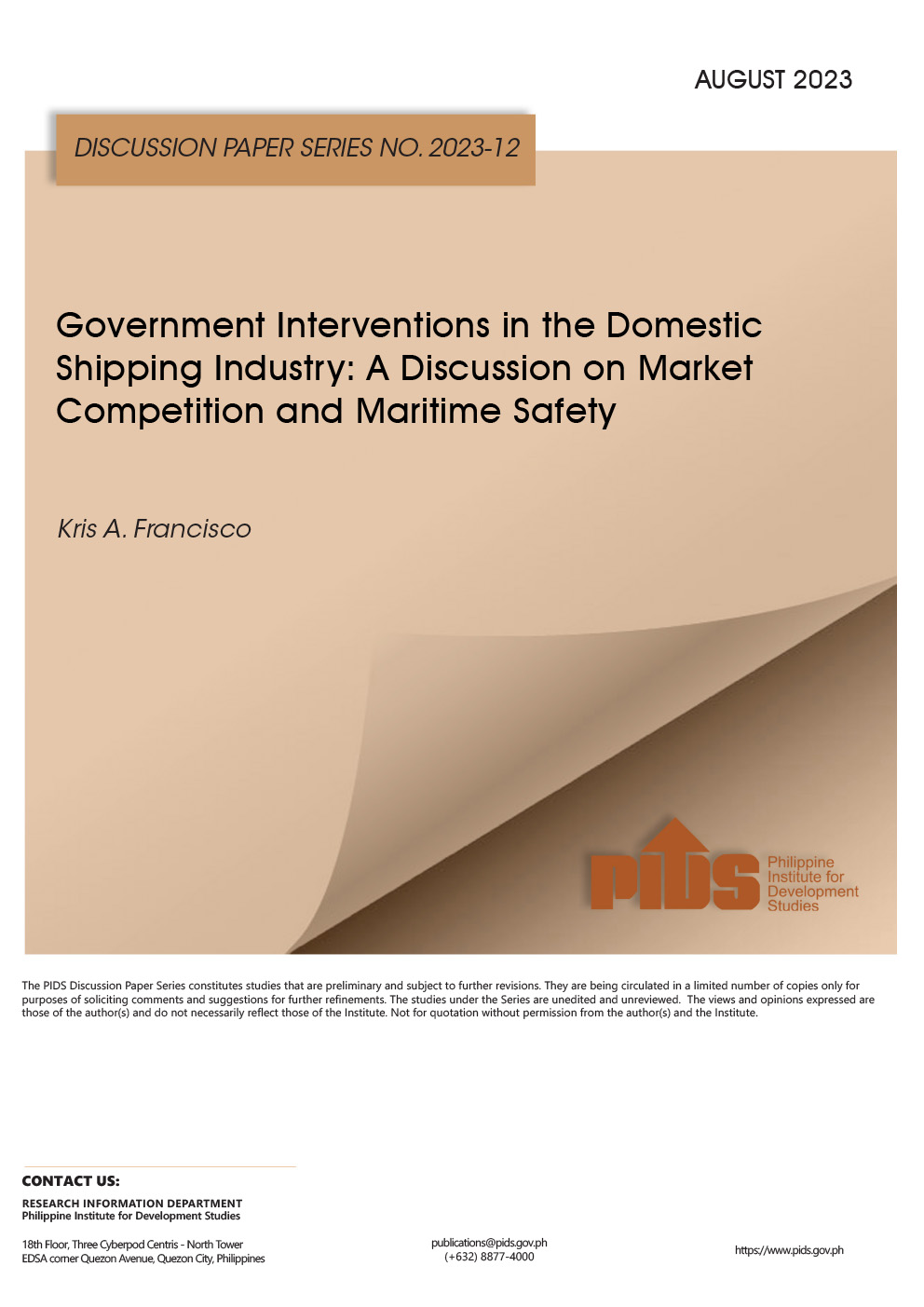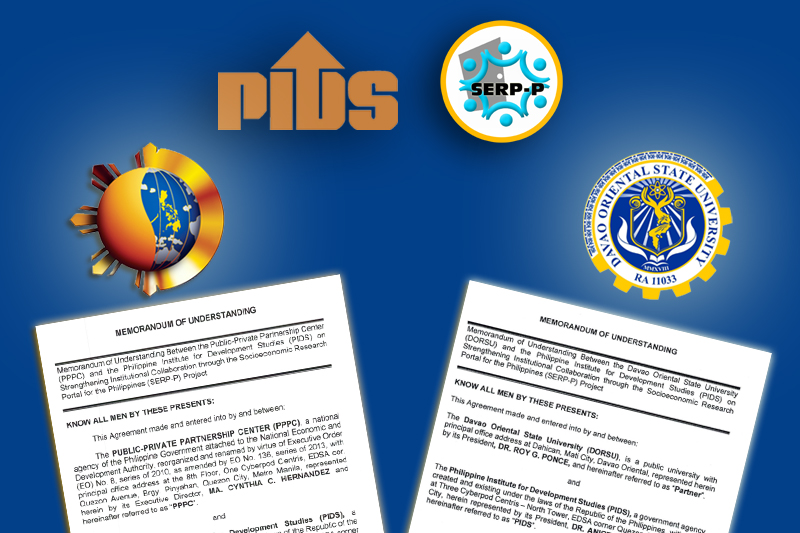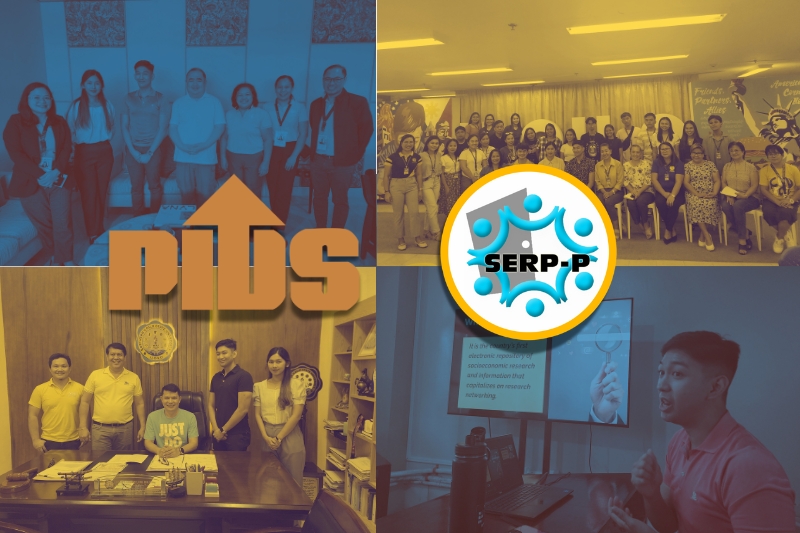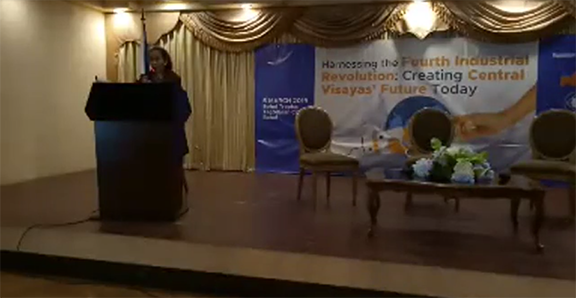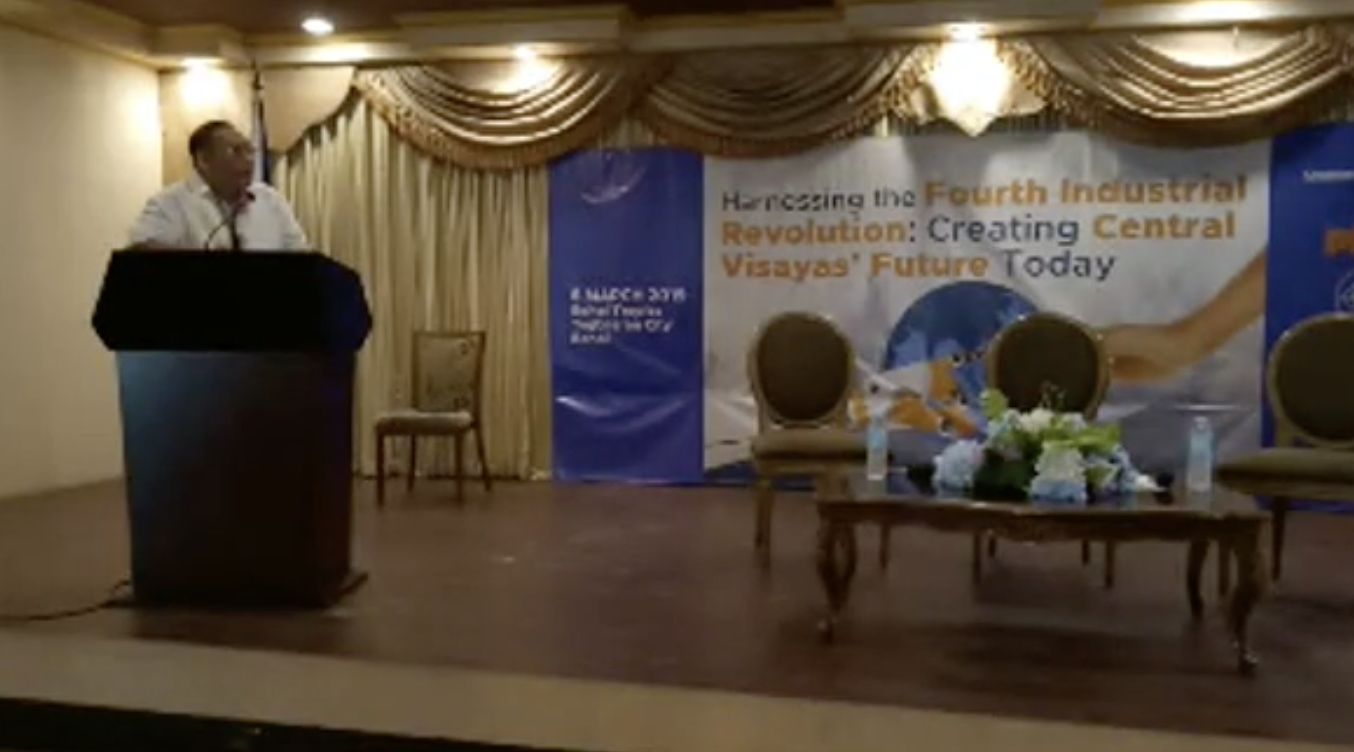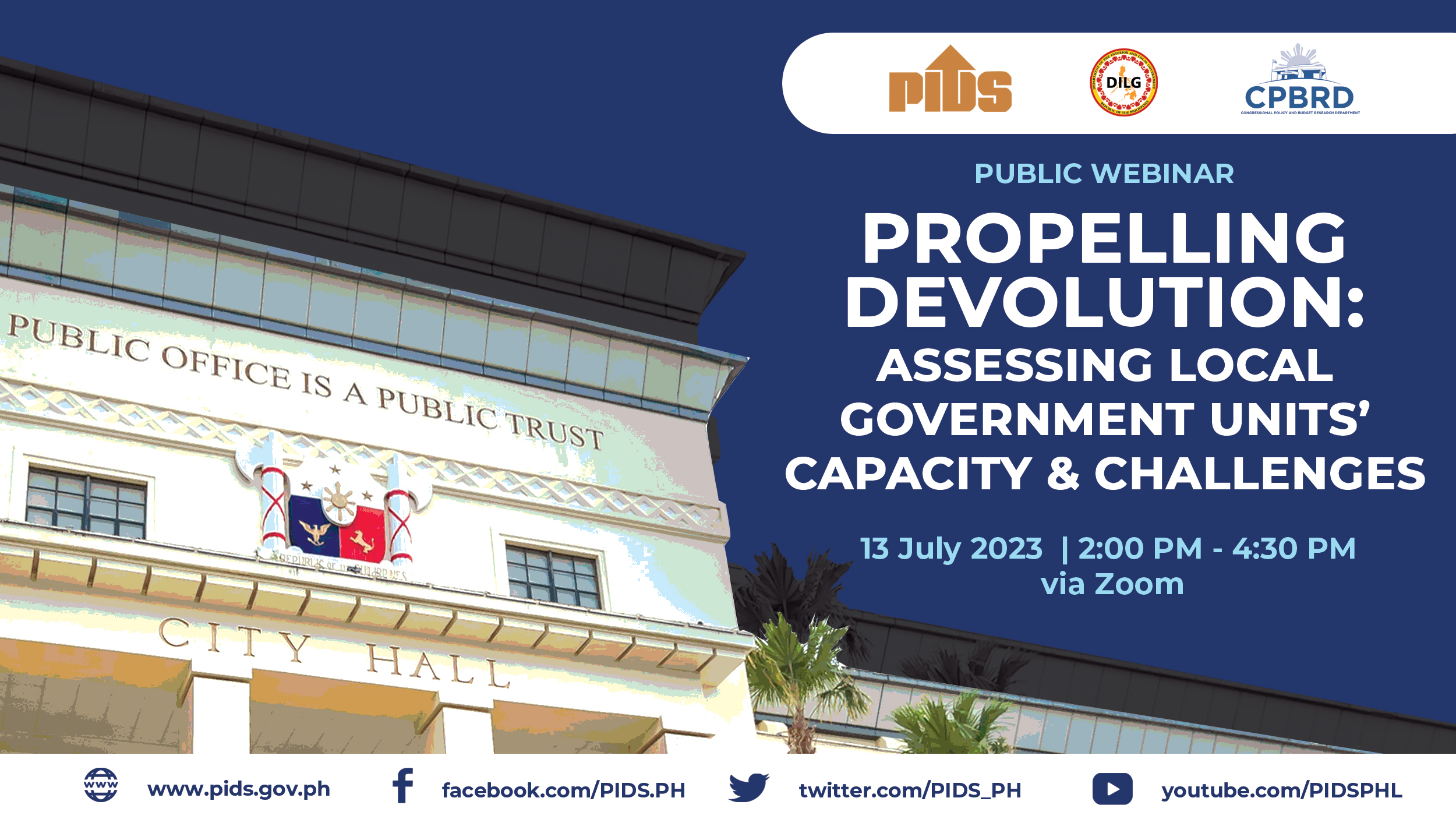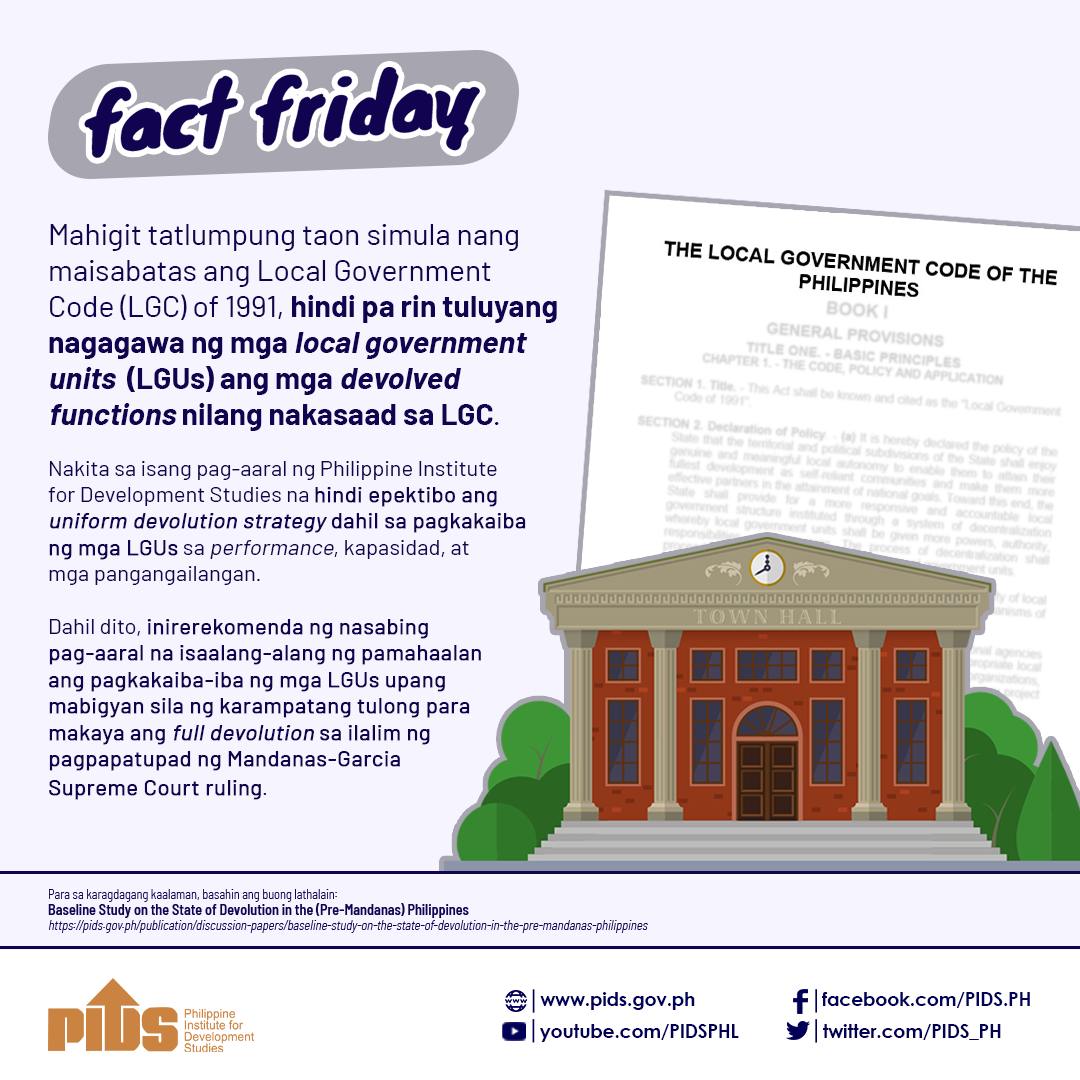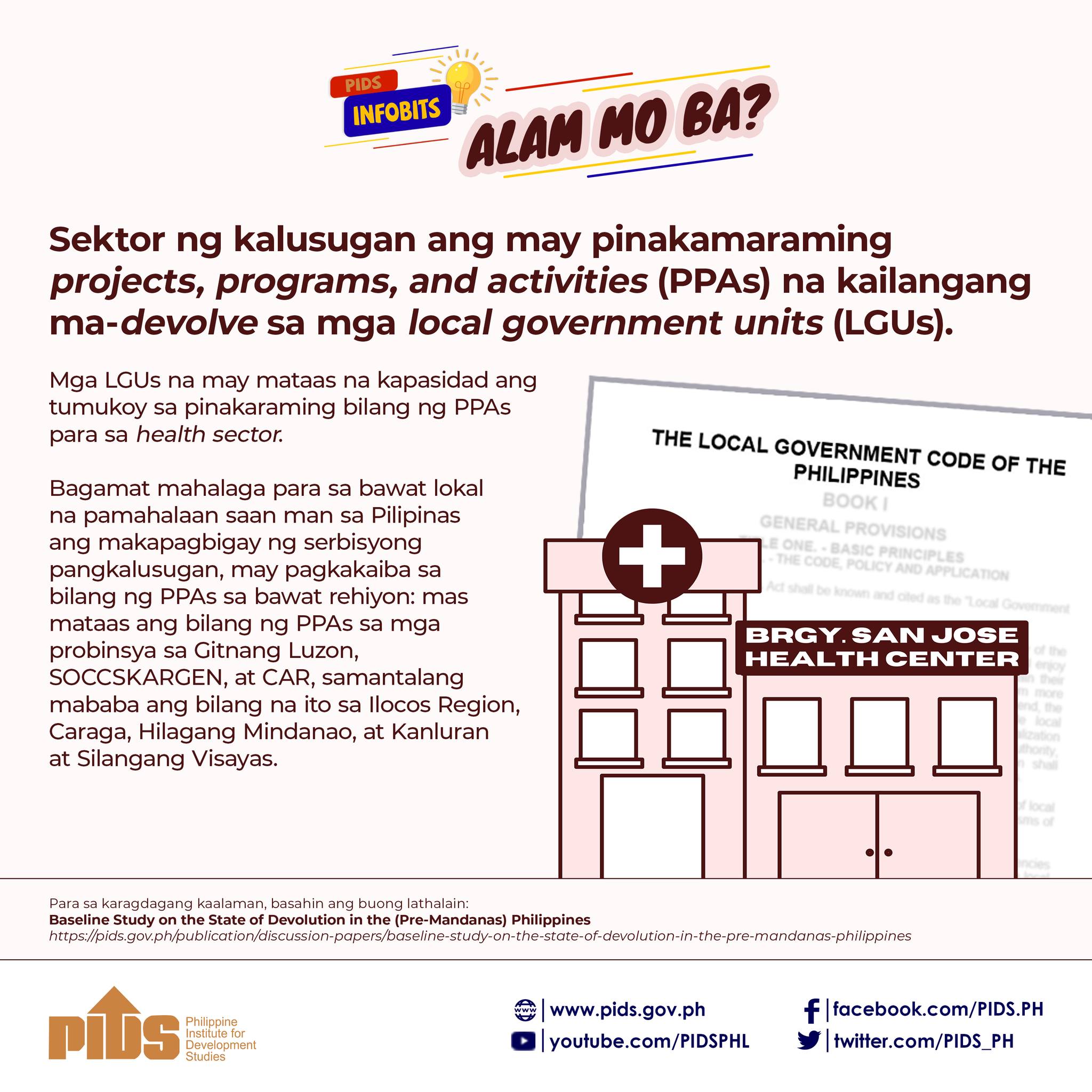The Development Academy of the Philippines Center for Governance – Policy Research Office (CfG-PRO) continued its two-part discussion on full devolution in line with the implementation of the Mandanas ruling in the fourth installment of the Thursday Talks Webinar Series entitled “Devolution Ready: Realizing Meaningful Autonomy” under the Capability Building on Innovative Leadership for Legislative Staff (CBILLS) program.
In the first session, National Economic and Development Authority Regional Development Group Undersecretary Mercedita Sombilla noted that inequity is still evident in the Philippines, even when the budget is being adjusted for the regional population and GDP.
Usec. Sombilla enumerated activities that are in place to strengthen regional development, such as the discussion on the proposed circular to strengthen regional investment programming and budgeting linkage and the implementation of programs such as the Balik Probinsya, Bagong Pag-asa (BP2) Program.
According to her, these initiatives guide offices and the Regional Development Councils with the prioritization of projects, strengthen horizontal and vertical linkages, and promote regional equity amongst different regions.
OIC-Director John Aries Macaspac of the Local Government and Regional Coordination Bureau of the Department of Budget and Management discussed the past and current computations of LGU shares in line with the Mandanas ruling during the second session. His discussion also included the allocation, projection, and priorities in the use of the internal revenue allotment (IRA)/national tax allotment (NTA) shares of LGUs and other local resources in funding the devolved functions and services.
Director Macaspac also tackled memorandum circulars that aid LGUs in the prioritization of budget allocations such as those for development and for disaster risk reduction and management.
The third session featured two speakers, the first one being Quirino Governor Dakila Carlo Cua, National President of the Union of Local Authorities of the Philippines and National Chairman of the League of Provinces of the Philippines. Joining him was Dr. Charlotte Justine Diokno-Sicat, a Research Fellow at the Philippine Institute for Development Studies.
Gov. Cua argued that there should be clearer recognition of the inequity experienced by LGUs and emphasized that the devolution transition plan efforts may take more time than the 120 days mentioned in Executive Order No. 138, s. 2021.
On the other hand, Dr. Diokno-Sicat gave four general recommendations for the strengthening of devolution namely strategic fund utilization, enhancing the generation of funds, alignment of funds, and institutional adjustment, alignment, and coordination.
University of the Philippines Diliman – Department of Political Science professor Dr. Maria Ela Atienza served as the moderator of the open forum. Discussions were made on questions from participants on points such as LGUs and government personnel who will be affected by the Mandanas ruling, federalism in relation to devolution, and recommendations of the resource persons to increase the utilization and optimization of IRA/NTA.
In response to some questions, Dr. Diokno-Sicat explained that the economic principles behind devolution, decentralization, and federalism are essentially the same and that we have the tools to help us strengthen the goals of the Mandanas ruling. On the other hand, Director Masapac emphasized that it is up to LGUs to prioritize projects that they feel are important for their development and that projects cannot be imposed on the LGUs.
DAP resumes the discussion on devolution in the fourth installment of the CBILLS Thursday Talks

